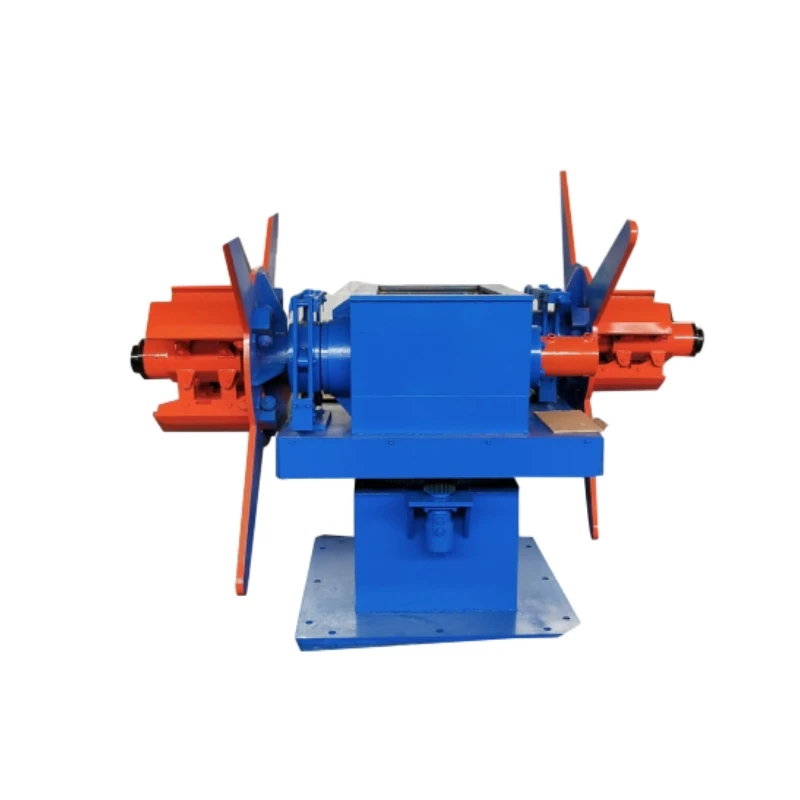Advanced Welding Machinery for Efficient Pipe Fabrication and Manufacturing Solutions
Understanding Welding Pipe Machines Technology and Applications
Welding pipe machines are essential tools in various industries, primarily focused on the joining of pipes using welding techniques. These machines play a vital role in manufacturing, construction, and maintenance sectors, where strong and durable pipe connections are crucial for systems such as oil and gas, water supply, and chemical processing. In this article, we will delve into the different types of welding pipe machines, the technologies they employ, their applications, and the future trends in this domain.
Types of Welding Pipe Machines
Welding pipe machines come in various forms, each designed to suit specific applications. The most common types include
1. Arc Welding Machines These machines use an electric arc to produce heat, melting the base materials and the filler rod to create a strong bond. Among arc welding methods, Submerged Arc Welding (SAW) is particularly popular for thicker materials.
2. TIG Welding Machines Tungsten Inert Gas (TIG) welding is known for its precision and ability to weld thin materials. It employs a non-consumable tungsten electrode, making it ideal for critical applications where strength and quality are paramount.
3. MIG Welding Machines Metal Inert Gas (MIG) welding is renowned for its speed and efficiency, using a continuous feed of welding wire and shielding gas to protect the weld pool. It is widely used in both industrial and residential applications.
4. Orbital Welding Machines These are specialized for welding pipes in industries like pharmaceuticals and aerospace, where cleanliness and precision are essential. Orbital welding employs a rotating electrode to ensure a consistent and high-quality weld.
5. Plasma Arc Welding Machines These machines generate a high-temperature plasma arc and are suitable for welding a variety of metals. They offer high precision and can achieve deeper penetration, making them ideal for thicker materials.
Technologies in Welding Pipe Machines
Modern welding pipe machines have integrated advanced technologies to improve efficiency, quality, and safety
. Some noteworthy technologies include- Automation and Robotics Many welding machines now incorporate robotic systems that enhance welding speed and accuracy while minimizing human error. Automation also allows for repetitive tasks to be completed consistently, improving overall productivity.
- Real-time Monitoring Systems Advanced machines come equipped with sensors and monitoring systems that provide real-time feedback on the welding process. These systems help ensure that the parameters such as temperature and speed are within optimal ranges, leading to higher quality welds.
welding pipe machine

- Data Analytics The integration of data analytics into welding machinery allows manufacturers to track performance metrics, machine wear, and maintenance needs. Analyzing this data can lead to predictive maintenance schedules and reduce downtime.
Applications of Welding Pipe Machines
Welding pipe machines are utilized in several critical sectors
- Oil and Gas Industry Strong and reliable pipe connections are crucial in this sector, where pipelines transport oil and gas over large distances. Welding pipe machines ensure that joints withstand high pressure and adverse environmental conditions.
- Construction In construction, welding machines are used for installing piping systems for water supply, drainage, and HVAC systems. The durability of welded joints is essential in ensuring the longevity and reliability of these systems.
- Manufacturing Various manufacturing processes rely on welded piping for transporting materials or gases throughout their facilities. Industries such as automotive, aerospace, and food processing depend heavily on the efficacy of welding technology.
- Shipbuilding The shipbuilding industry utilizes welding pipe machines for constructing hulls and pipelines within vessels. The ability to produce strong and watertight joints is essential in ensuring the safety and performance of ships.
Future Trends in Welding Pipe Machines
Looking forward, the welding industry is witnessing several trends that are shaping the future of welding pipe machines
- Increased Use of AI and Machine Learning The incorporation of Artificial Intelligence (AI) and machine learning will further enhance automation in welding processes, predicting outcomes based on historical data and optimizing workflows.
- Focus on Eco-friendly Solutions As industries move towards sustainable practices, there’s a growing demand for eco-friendly welding solutions. This includes exploring alternative materials and processes that minimize environmental impact.
- Advancements in Material Science The development of advanced materials is prompting modifications to welding techniques and machines, as manufacturers seek to join materials that previously were difficult to weld.
In conclusion, welding pipe machines are indispensable in various industries, ensuring the integrity and reliability of piping systems. As technology advances, these machines continue to evolve, embracing automation and smart technologies that promise to enhance productivity and quality in welding operations. The future of welding pipe machines is likely to be characterized by innovation geared towards efficiency, precision, and sustainability, paving the way for safer and more reliable infrastructure.
-
High Frequency Straight Seam Welded Pipe Production Line-BzZhou Xinghua Machinery Equipment Manufacturing Co., LTD.|line pipe steel&welded gas pipeNewsJul.30,2025
-
High Frequency Straight Seam Welded Pipe Production Line-BzZhou Xinghua Machinery Equipment Manufacturing Co., LTD.|High Precision&Automated SolutionsNewsJul.30,2025
-
High Frequency Straight Seam Welded Pipe Production Line - BzZhou Xinghua Machinery Equipment Manufacturing Co., Ltd.NewsJul.30,2025
-
High Frequency Straight Seam Welded Pipe Production Line-BzZhou Xinghua Machinery Equipment Manufacturing Co., LTD.|Precision Welding, High EfficiencyNewsJul.30,2025
-
High Frequency Straight Seam Welded Pipe Production Line|BzZhou Xinghua|Precision Welding&EfficiencyNewsJul.30,2025
-
High Frequency Straight Seam Welded Pipe Production Line - BzZhou Xinghua|Precision Engineering&EfficiencyNewsJul.30,2025


